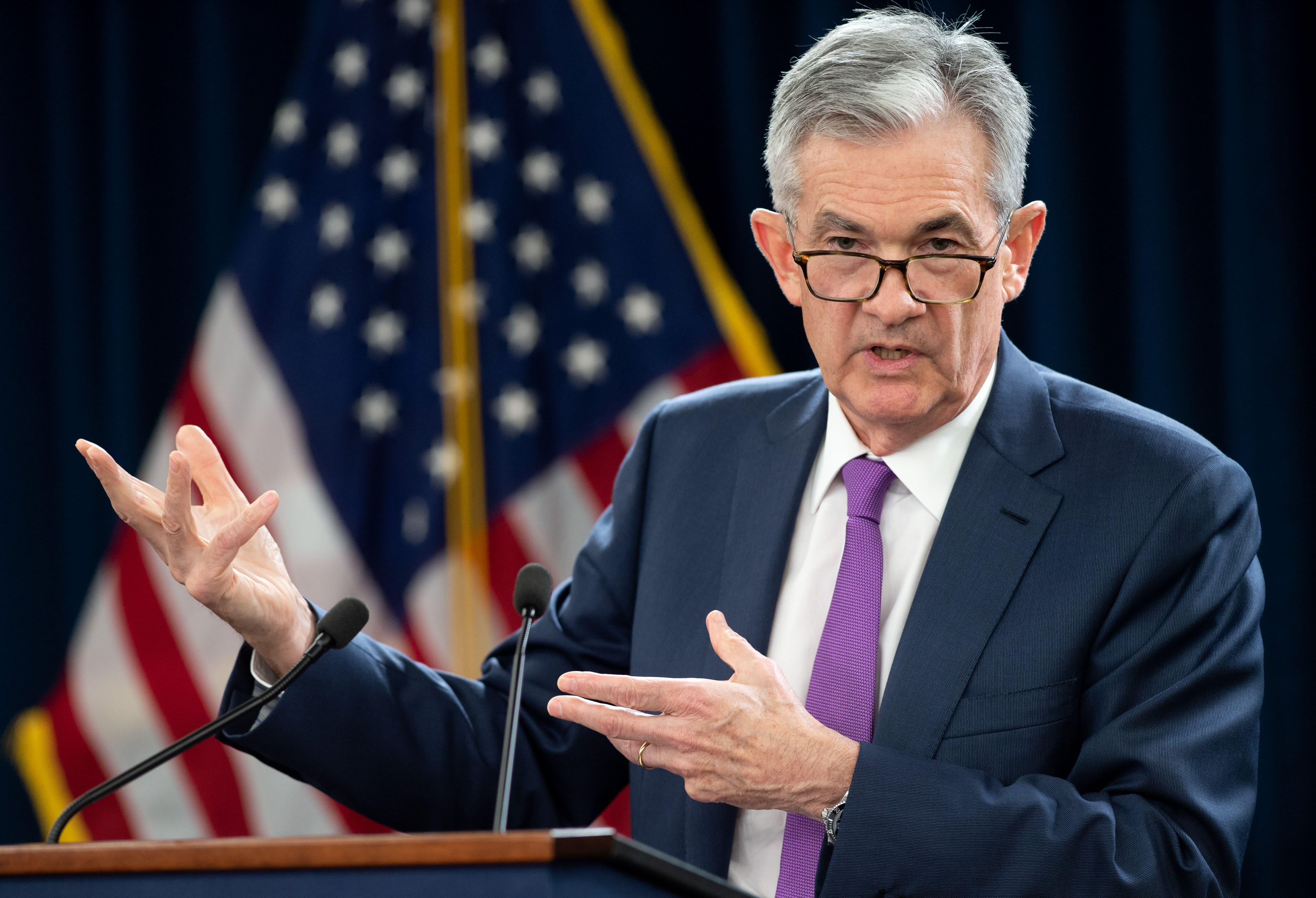The Federal Reserve feels comfortable with current policy and is likely to keep interest rates steady for an extended period of time, Chairman Jerome Powell said Wednesday.
Powell's comments coincided with a sharp stock market sell-off attributed to worries that the Fed would not be cutting rates anytime soon, contrary to market pricing.
"We do think our policy stance is appropriate right now. We don't see a strong case for moving in either direction," Powell said during a news conference after the central bank's policy meeting this week.
Before the chairman's comments, traders on the fed funds futures market had been pricing in about a 67% chance of a rate cut by the end of the year. That probability had been reduced to about 55%, according to the CME's tracker of trading in the Fed's benchmark rate.
In a move that met market expectations, the Federal Open Market Committee unanimously voted to keep the benchmark rate in a range between 2.25% and 2.5%.
President Donald Trump has exerted an unusual level of public pressure to get the Fed to lower rates, suggesting Tuesday that a 1 percentage point cut would be in order.
Without addressing Trump's criticisms directly, Powell said that absent a significant change in conditions, the current policy will prevail.
The president has cited low inflation as a key reason for the Fed to cut. Powell, though, said that he expects inflation to run close to the central bank's 2% goal.
"If we did see inflation running persistently below [the goal], that is something the committee would be concerned about, something we would take into account when setting policy," Powell said in response to a question from CNBC's Steve Liesman.
The Fed's favored inflation gauge showed a 12-month gain of 1.6% in March. Powell acknowledged that the reading was below what he had expected, but he called the pressures that drove inflation lower "transient" and likely to revert as the reading gets closer to the Fed's goal. Among the transitory factors he cited were a decline in financial services fees after the stock market's fourth-quarter slide, as well as health-care costs.
Other measures besides the personal consumption expenditures index have showed inflation around 2%. The Dallas Fed's trimmed mean PCE indicator as well as the core consumer price index both showed a 2% gain in March.
As the market digested Powell's comments, stocks took a sharp turn downward and the Dow Jones Industrial Average finished the day off 163 points.
Chris Gaffney, president of world markets at TIAA Bank, said some of the issue was that traders misinterpreted a technical adjustment the Fed made to the interest it pays on excess bank reserves.
The Federal Open Market Committee reduced the rate by 5 basis points to 2.35%, a move the market initially interpreted as a dovish tilt for the policymaking group. However, Powell explained at his post-meeting news conference that the move was done simply to keep the benchmark fed funds rate within its target range of 2.25% to 2.5% and did not represent a policy shift.


